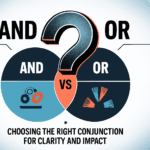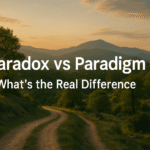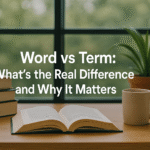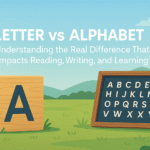And vs Or: Choosing the Right Conjunction for Clarity and Impact
Understanding how to use conjunctions like and and or correctly can make or break the clarity of your writing. These small words carry big weight. Whether you’re writing an academic paper, composing business emails, or crafting web content, mastering conjunction usage is essential for making your message clear and professional. What Are Conjunctions? Conjunctions are […]
Read More »









